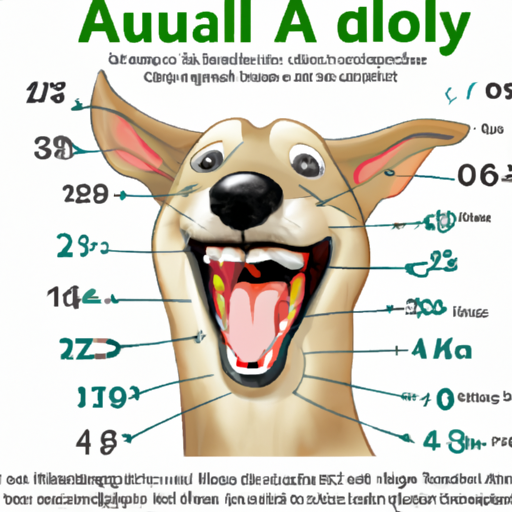As a caregiver for your beloved canine companion, you must be aware of every aspect of their health and well-being. Among the many things to keep an eye on, dental health is paramount. The question that often arises is, “how many teeth do adult dogs normally have?” Let’s dive into this topic and provide you with comprehensive and detailed information.
Understanding the Canine Dental Structure
Just like humans, dogs also go through two sets of teeth in their lifetime – the deciduous (or baby) teeth and the permanent (or adult) teeth. The baby teeth start to appear when puppies are around 3-4 weeks old. However, these teeth are soon replaced by the permanent set.
By the time your dog reaches adulthood, which is typically around six months of age, they should ideally have 42 teeth. This is significantly more than the 32 teeth that we humans have. But why do dogs have more teeth? The answer lies in their carnivorous origins which required an array of sharp teeth to catch and eat prey.
These 42 teeth include:
- 12 Incisors
- 4 Canines
- 16 Premolars
- 10 Molars
| Type of Teeth | Number |
|---|---|
| Incisors | 12 |
| Canines | 4 |
| Premolars | 16 |
| Molars | 10 |
| Total | 42 |
Importance of Dental Care in Dogs
You might wonder, “why is it important for me to know the number of teeth my dog should have?” The reason is simple. Understanding your dog’s dental structure and keeping track of their teeth will help you ensure their oral health.
-
Prevents Dental Diseases: Regular dental check-ups can prevent the onset of dental diseases such as periodontal disease, which is highly prevalent in dogs. Early detection and treatment can save your pet from pain and discomfort.
-
Ensures Adequate Nutrition: Healthy teeth are crucial for your dog’s ability to chew food properly. This ensures that they receive adequate nutrition from their diet.
-
Promotes Overall Health: Poor oral health can lead to other systemic issues like heart disease and kidney disease. Hence, maintaining your dog’s dental health can contribute to their overall well-being.
Caring for Your Dog’s Teeth
Now that you understand the structure and importance of your dog’s teeth let’s look at some ways you can help maintain their oral health.
- Regular Brushing: Just like humans, dogs benefit from regular teeth brushing. Use a dog-specific toothpaste and brush at least a few times a week.
- Dental Chews: These are specially designed toys that help clean your dog’s teeth as they chew on them. They can be a great supplement to brushing.
- Veterinary Check-ups: Regular vet visits will help catch any dental issues early before they become serious problems.
What If My Dog Has Missing Teeth?
Sometimes, dogs may have fewer than 42 teeth. This could be due to several reasons such as tooth loss due to dental disease, injury, or they may be born with fewer teeth. If you notice missing teeth in your dog, it’s important to consult with your vet. They can determine if the missing teeth are a cause for concern and advise on any necessary treatment or changes in diet.
Frequently Asked Questions
How often should I brush my dog’s teeth?
Ideally, you should brush your dog’s teeth daily. However, if that’s not possible, aim for at least three times a week.
My dog has bad breath. Is that normal?
While it’s common for dogs to have breath that’s less than fresh, extremely foul-smelling breath could be a sign of dental disease. It’s best to have your vet check it out.
What are some signs of dental problems in dogs?
Signs of dental issues can include bad breath, difficulty eating, drooling, pawing at the mouth, or visible plaque and tartar. If you notice any of these signs, schedule a vet appointment.
Do certain breeds have more dental issues?
Yes, some breeds, particularly small breeds, are more prone to dental issues. This is due to the crowding of teeth in their small mouths.
Remember, knowledge is the first step towards action. Now that you’re armed with this information, you can take proactive steps towards ensuring your dog’s oral health. Your furry friend is counting on you for their well-being—keep their tail wagging with a sparkling set of 42 teeth!



